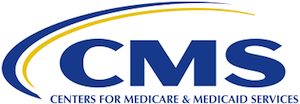electronic health information (EHI)
See the following -
CMS Launches Data Element Library To Support Interoperability
 Today, the Centers for Medicare & Medicaid Services (CMS) announced the agency’s first Data Element Library (DEL). The DEL is a new CMS database that supports the exchange of electronic health information. Using this free, centralized resource, the public for the first time can view the specific types of data that CMS requires post-acute care facilities (such as nursing homes and rehabilitation hospitals) to collect as part of the health assessment of their patients. These assessments include questions and response options (data elements) about patients, including demographics, medical problems and other types of health evaluations. Read More »
Today, the Centers for Medicare & Medicaid Services (CMS) announced the agency’s first Data Element Library (DEL). The DEL is a new CMS database that supports the exchange of electronic health information. Using this free, centralized resource, the public for the first time can view the specific types of data that CMS requires post-acute care facilities (such as nursing homes and rehabilitation hospitals) to collect as part of the health assessment of their patients. These assessments include questions and response options (data elements) about patients, including demographics, medical problems and other types of health evaluations. Read More »
- Login to post comments
HHS Releases Interoperability Rules
 The U.S. Department of Health and Human Services (HHS) today proposed new rules to support seamless and secure access, exchange, and use of electronic health information. The rules, issued by the Centers for Medicare & Medicaid Services (CMS) and the Office of the National Coordinator for Health Information Technology (ONC), would increase choice and competition while fostering innovation that promotes patient access to and control over their health information. The proposed ONC rule would require that patient electronic access to this electronic health information (EHI) be made available at no cost.
The U.S. Department of Health and Human Services (HHS) today proposed new rules to support seamless and secure access, exchange, and use of electronic health information. The rules, issued by the Centers for Medicare & Medicaid Services (CMS) and the Office of the National Coordinator for Health Information Technology (ONC), would increase choice and competition while fostering innovation that promotes patient access to and control over their health information. The proposed ONC rule would require that patient electronic access to this electronic health information (EHI) be made available at no cost.
- Login to post comments
How to Prepare for the API Requirements of the Cures Act
 As of April 5, 2021, the U.S. ONC Cures Act Final Rule Compliance Timeframe is in effect. Healthcare providers, Health IT developers, Health Information Exchanges (HIEs), and Health Information Networks (HINs) will have until October 6, 2022, to provide patients with access to all their Electronic Health Information (EHI). There are several requirements that providers, developers, and exchanges must adhere to. Among them are Conditions and Maintenance of Certification requirements for Information Blocking, Communications, and Application Programming Interfaces (APIs). To help you navigate this compliance timeframe, we've asked our J P System's HL7 FHIR® expert, Jay Lyle, what does one need to know about APIs and data standards. Jay has been co-chair of the HL7 Patient Care Work Group for 8 years and is an expert in HL7 data standards development and APIs.
As of April 5, 2021, the U.S. ONC Cures Act Final Rule Compliance Timeframe is in effect. Healthcare providers, Health IT developers, Health Information Exchanges (HIEs), and Health Information Networks (HINs) will have until October 6, 2022, to provide patients with access to all their Electronic Health Information (EHI). There are several requirements that providers, developers, and exchanges must adhere to. Among them are Conditions and Maintenance of Certification requirements for Information Blocking, Communications, and Application Programming Interfaces (APIs). To help you navigate this compliance timeframe, we've asked our J P System's HL7 FHIR® expert, Jay Lyle, what does one need to know about APIs and data standards. Jay has been co-chair of the HL7 Patient Care Work Group for 8 years and is an expert in HL7 data standards development and APIs.
- Login to post comments
ONC Gets It Mostly Right with TEFCA 2.0
 On April 17, 2019 the Office of the National Coordinator for Health Information Technology (ONC) released the second draft of its Trusted Exchange Framework and Common Agreement (TEFCA) for comment. The initial version was released more than a year ago in January 2018 (see my original blog). As before, this is in response to a requirement imposed by Congress in the 21 Century Cures Act. After a somewhat lengthy (but well written) introduction, the document contains three parts (compared to just two parts the first time around)...
On April 17, 2019 the Office of the National Coordinator for Health Information Technology (ONC) released the second draft of its Trusted Exchange Framework and Common Agreement (TEFCA) for comment. The initial version was released more than a year ago in January 2018 (see my original blog). As before, this is in response to a requirement imposed by Congress in the 21 Century Cures Act. After a somewhat lengthy (but well written) introduction, the document contains three parts (compared to just two parts the first time around)...
- Login to post comments
The Strengths and Weaknesses of the HL7 FHIR Messaging Standard
 It has been several years since we reviewed the progress of the HL7 FHIR standards adoption rate. Health Level Seven's (HL7) Fast Healthcare Interoperability Resources (FHIR) is an emerging standard that has rapidly captured the mind-share of the Health Information Technology (HIT) standards community. FHIR is a standard that enables healthcare data sharing between systems in a manner that is more easily implemented and more expressive than previous HL7 standards such as HL7 Version 2, 3 and Clinical Document Architecture (CDA). Regardless of the version of HL7 standard used, the purpose of these standards is to send clinical data in messages, whether to a party inside or outside your organization. HL7 devises flexible message formats so the receiver of the message can open it up, know who sent it and why, and break it down into understandable segments and data fields.
It has been several years since we reviewed the progress of the HL7 FHIR standards adoption rate. Health Level Seven's (HL7) Fast Healthcare Interoperability Resources (FHIR) is an emerging standard that has rapidly captured the mind-share of the Health Information Technology (HIT) standards community. FHIR is a standard that enables healthcare data sharing between systems in a manner that is more easily implemented and more expressive than previous HL7 standards such as HL7 Version 2, 3 and Clinical Document Architecture (CDA). Regardless of the version of HL7 standard used, the purpose of these standards is to send clinical data in messages, whether to a party inside or outside your organization. HL7 devises flexible message formats so the receiver of the message can open it up, know who sent it and why, and break it down into understandable segments and data fields.
- Login to post comments
Two New Federal Reports Released That Have Major Public Health Impacts
 Two new Federal reports were recently released that have a public health impact. First, the Office of the National Coordinator for Health Information Technology (ONC) released its 2022 Report to Congress: Update on Access, Exchange, and Use of Electronic Health Information. This report covers the current state of adoption of health information technology and access to electronic health information guided largely by the requirements of the 2016 21st Century Cures Act. The report observes that, “Although tremendous progress has been made with EHRs that capture and support the use of health information about individuals, the COVID-19 pandemic exposed gaps in health IT systems that support capturing and using population data. The challenges exposed during the public health response to the COVID-19 pandemic pinpointed the importance of health IT to monitor population health regarding public health surveillance of testing, diagnosis, and vaccine distribution.”
Two new Federal reports were recently released that have a public health impact. First, the Office of the National Coordinator for Health Information Technology (ONC) released its 2022 Report to Congress: Update on Access, Exchange, and Use of Electronic Health Information. This report covers the current state of adoption of health information technology and access to electronic health information guided largely by the requirements of the 2016 21st Century Cures Act. The report observes that, “Although tremendous progress has been made with EHRs that capture and support the use of health information about individuals, the COVID-19 pandemic exposed gaps in health IT systems that support capturing and using population data. The challenges exposed during the public health response to the COVID-19 pandemic pinpointed the importance of health IT to monitor population health regarding public health surveillance of testing, diagnosis, and vaccine distribution.”
- Login to post comments